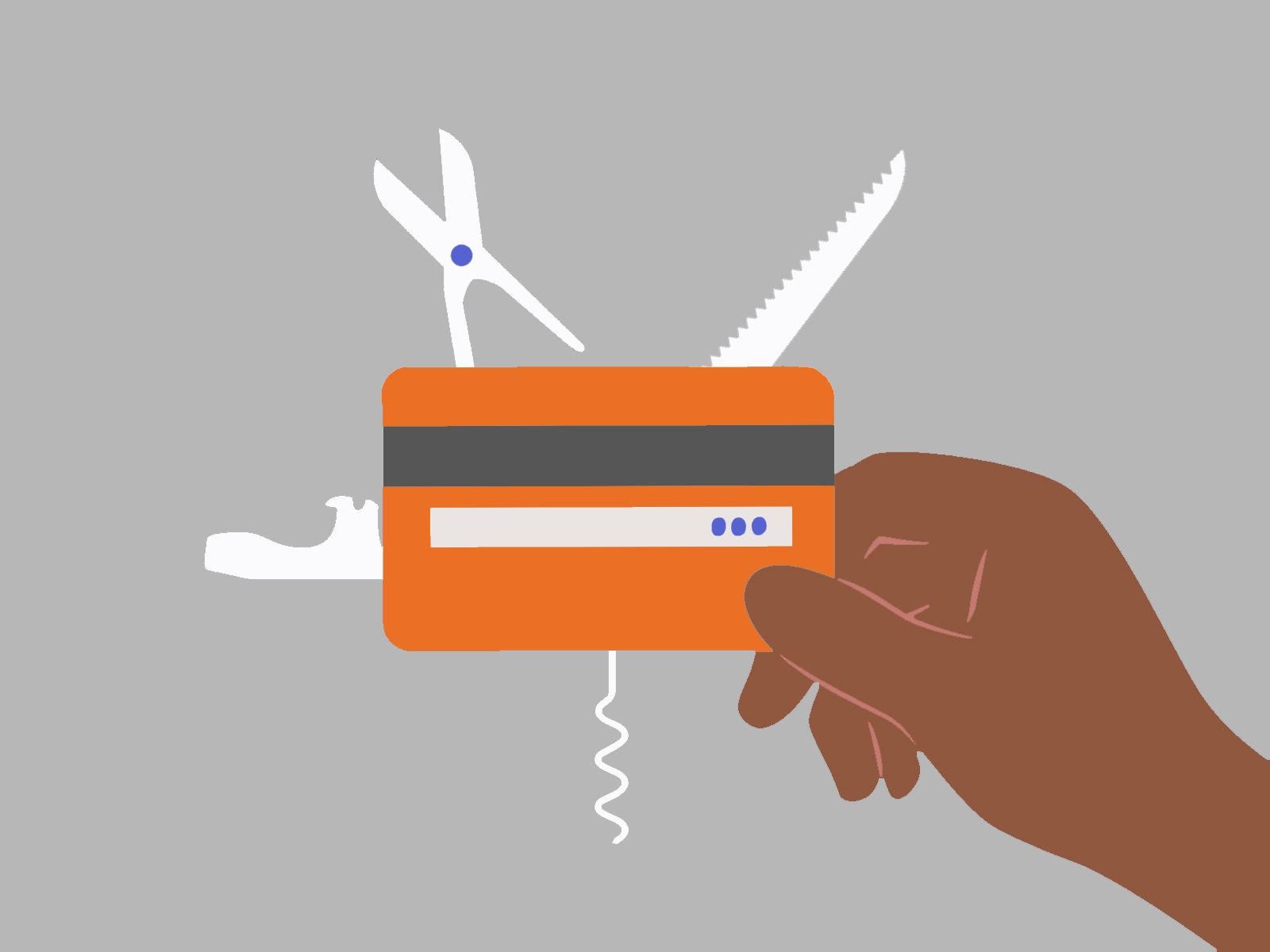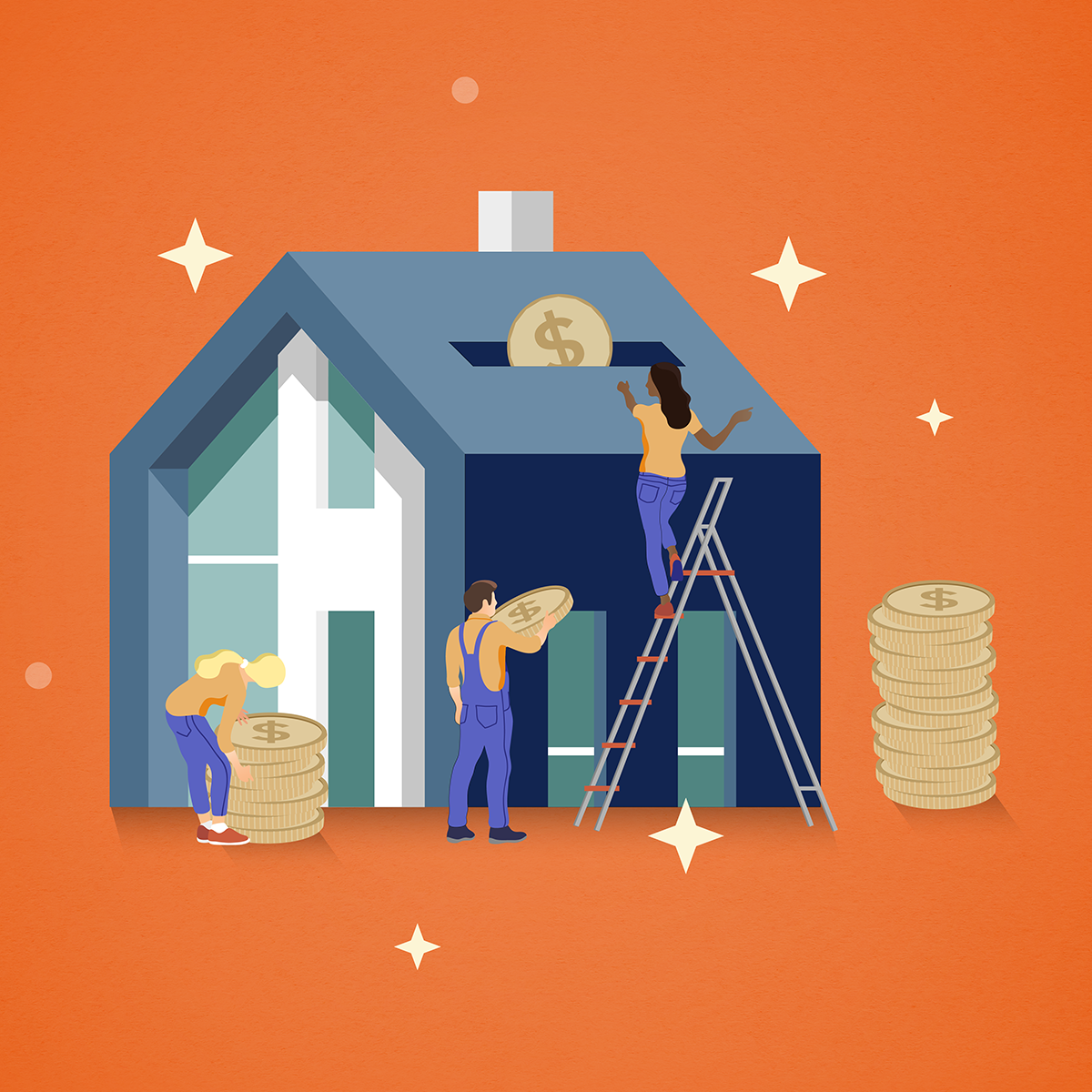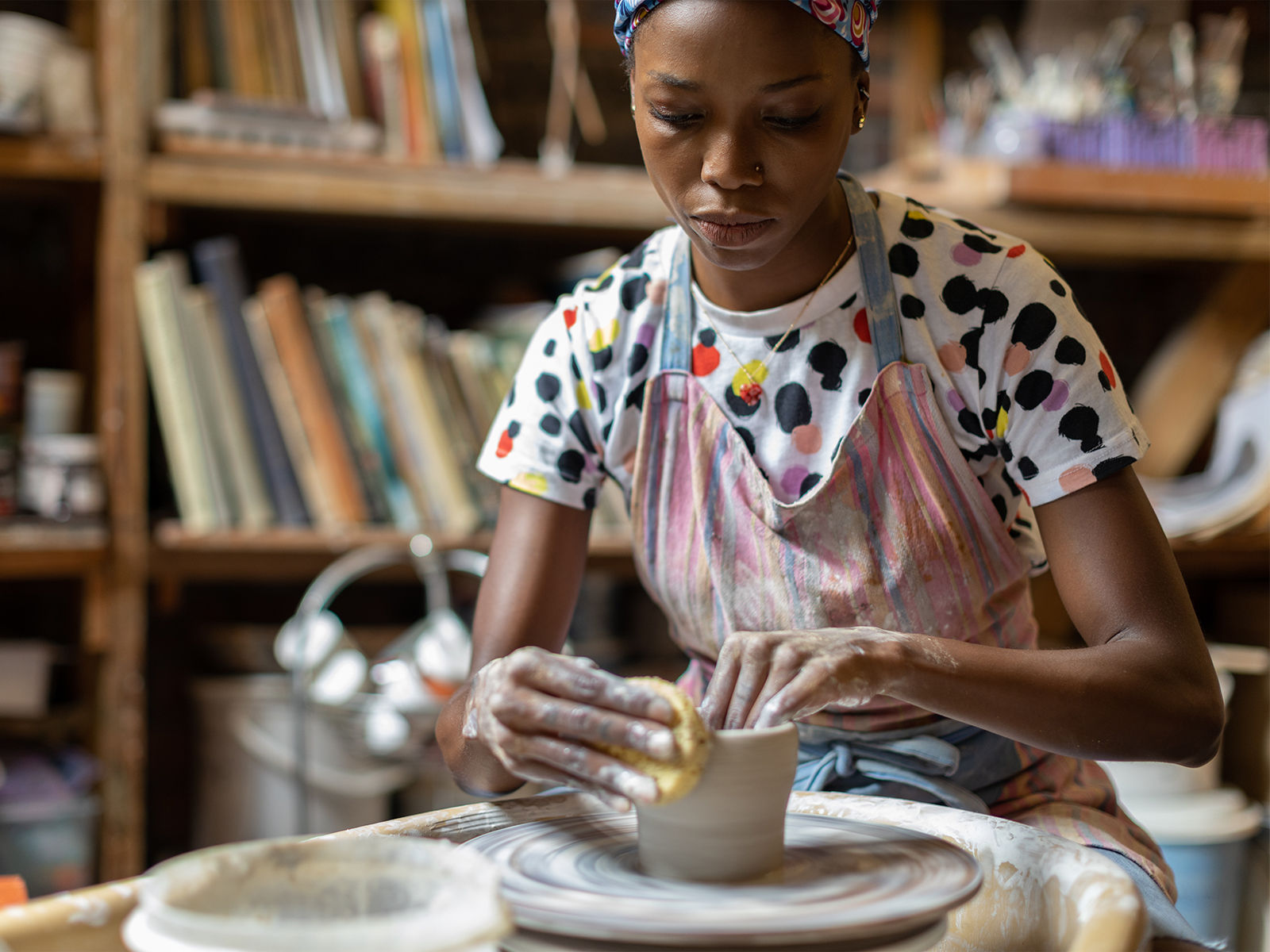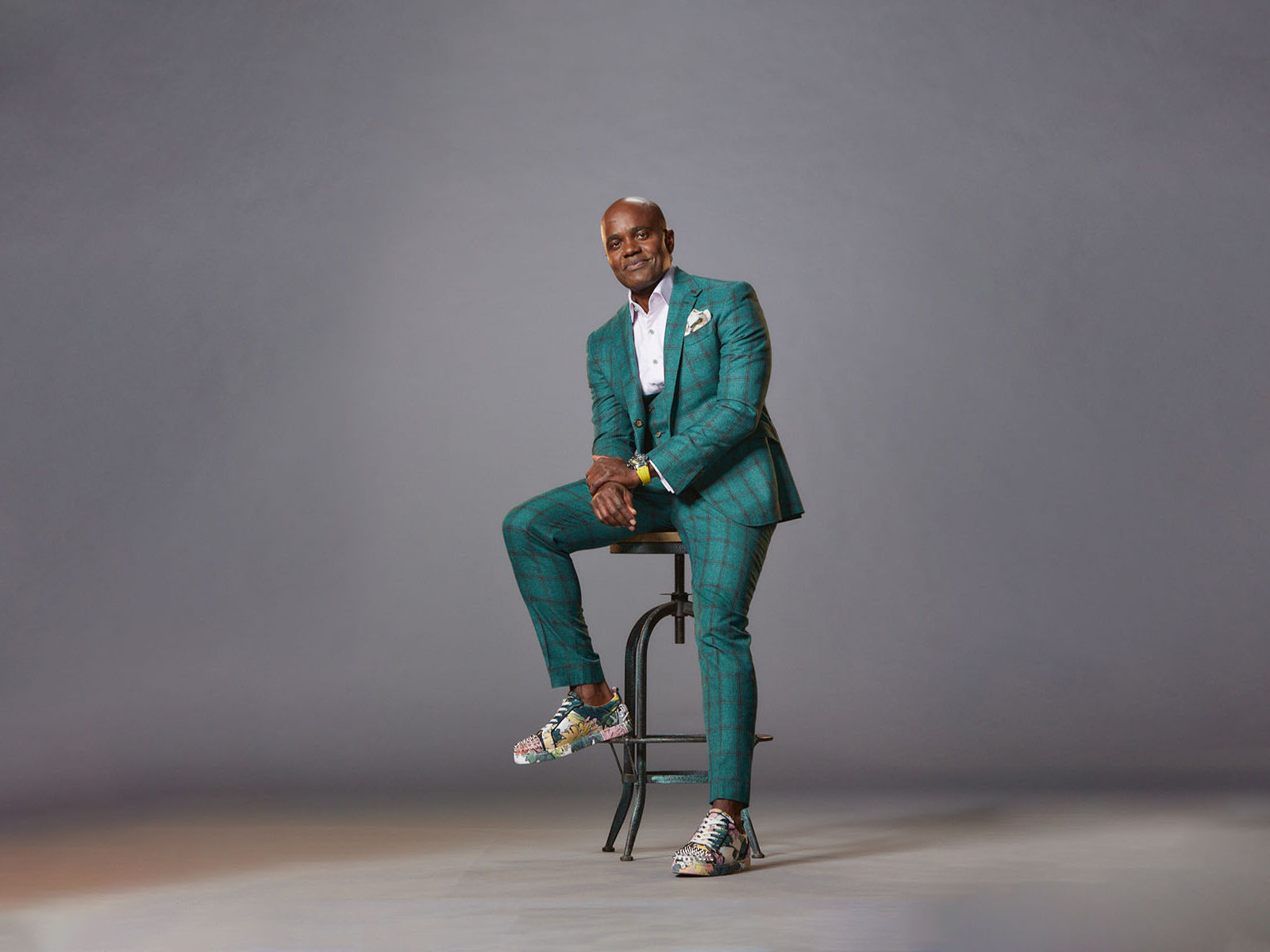'Never wait for the perfect' — an interview with Wes Hall
The Bay Street businessman, the investor on Dragons' Den, the changemaker, the role model — Wes Hall is all of the above. Each role flows seamlessly into the other, with one common factor: he is a person who strongly stands by what he believes in. Today, this belief is that People of Colour deserve more seats at influential tables.
“My companies, collectively, hire over 1,000 people," Hall said in an interview. "Over 1,000 people paying taxes, sending their kids to private schools and public schools, buying homes, giving back to the Canadian economy. How is it benefiting the economy to hold somebody like me back? Or you back? It hurts us all."
It's been more than two and a half years since Hall challenged corporate Canada with the BlackNorth Initiative to end systemic anti-Black racism and promote inclusive hiring. Hundreds of CEOs across Canada, including Tangerine's Gillian Riley, signed the BlackNorth Pledge in 2020, committed to increasing Black representation across the workplace. Tangerine also made a donation to BlackNorth in February 2023 in honour of Black History Month.
“Systemic racism has been on this continent for centuries, and we didn't expect that within two years, it'd be resolved," Hall says.
“But I can tell you that by 2025, my expectation is that you and I are having a very different conversation when it comes to representation for Black Canadians."
Hall recently took some time to chat about support for the Black community, offer advice for young people, and share a few nuggets of financial wisdom. He also touches on his own remarkable life story, which he recounts in a new memoir, No Bootstraps When You're Barefoot: My Rise from a Jamaican Plantation Shack to the Boardrooms of Bay Street.
Q: I'll start with my favourite quote from your book: “To me, being Black is my superpower." As a Black person myself, I have been told that my unique experiences are an added value. How do I harness this?
Wes Hall: When you're in a situation where you're the odd one in that room, there can be so many people that underestimate what you bring to the table. And it's to their detriment....
They don't bring their A-game — while you walk into that room knowing that they're thinking you have less capabilities and that you'd bring your A-game every single time.
Every time we do that, we always win. We always bring something that people who did not bring their A-game just aren't able to — because they underestimated us.
Q: How can we get comfortable with being the odd one in the room? How do you harness your uniqueness as a strength?
Wes Hall: Well, first of all, if you're an “only" (the only Black person in the room), it's a very, very difficult place to be. Very difficult… McKinsey did an anti-racist study on the financial services sector. It examines the phenomenon of being the only person.
When you're the only person in the room, you feel like you're representing an entire race. Every time people want to argue or say something about your culture, they come to you as the authority on your culture. Another mention is the higher intensity of microaggressions you experience when you're the only person. Being an only is psychologically taxing on that person....
What business leaders don't realize is that they're not getting the true potential of that Black person. When you're an only, you either do not contribute enough, or you contribute too much, because you're cautious about how you might be perceived.
Q: So, what does an individual who is an only do?
Wes Hall: If you're the only I would say this: it's up to the person in the room to start speaking up and say, “I don't want to be a token." If, for example, you are the first vice president or you're in the C-suite, and do not speak up during discussions about diversity, nothing will change.
So I always say that if you are lucky enough to be the first person to be in that situation, you have the privilege to make sure that you're not the only person there.
Q: This sounds like what you're doing with BlackNorth, which you launched in 2020 when 500 businesses – including Tangerine – signed a pledge. What are you most proud of?
Wes Hall: I'm proud of the work that we've done in a very short period of time. There are so many amazing companies that have done remarkable things.
We're seeing more Black people on boards and in C-suites. They did not come out of nowhere. The Black economist who we now see on television, or the directors who are now on boards: where were they before? They were all there. They didn't qualify overnight to be directors, economists, or members of the C-suite. They've always been there. But they've been overlooked! All these years.
Now, as a result of organizations like BlackNorth, they're getting the respect and attention they deserve.
Q: I see how far we've come. What still needs to be done?
Wes Hall: The Prosperity Project is an initiative that was launched in 2020. It supports women's representation on boards and in C-suites in corporate Canada.
Recently, the organization released a report stating that in Canada, women hold 34.2 per cent of board positions, 29.2 per cent of Executive Officer positions, 41.9 per cent of Senior Management positions, and 54.8 per cent of pipeline to senior management roles. Of these numbers, Women of Colour hold only 6.2 per cent of boards, executive, senior management, and pipeline roles collectively. Further, the number is less than 1 per cent for Black women and Indigenous women.
Most of the companies that reported indicated that there is no Black woman or Indigenous woman on their boards, or in their C-suite, senior leadership, senior management, and pipeline to senior management roles. Zero!
Q: This brings me to representation. You saw Black professionals in Jamaica, so when you came here, you weren't conditioned to think you couldn't be anything you want to be. What is the impact of representation?
Wes Hall: If you see someone who looks like you at the very top doing a marvelous job, you're going to be encouraged. You'd think: I think I can be that person one day. And it's going to encourage you to work hard and do all the things that you need to do to get there.
When you're told that that person had to go through various forms of racism to get there, you might think: I don't know if I'm strong enough to go through those things to get there. But when you see people get there just on their own smarts and hard work, it gives you more motivation, because you can work just as hard and feel that you're entitled to the same opportunities.
Q: One thing about your story that I find striking is that you kept pushing the limits. What drives you to keep pushing the borders of your ambition?
Wes Hall: If you looked at me back in that tin shack in rural Jamaica, I never thought this life would be possible. But I decided: why not give it a shot? And look at the transformational thing that BlackNorth is doing because I decided to. You don't know what your limitations are unless you push yourself.
I do this because one day, I'm not going to have the privilege and influence that I have today. We all lose it at some point. Why not use those privileges and skills that you have while you have the ability to use them? At some point, I'm going to retire. But I want to be able to look back at what I've done and go: I've done everything I possibly could; the little ambition that I have, and the little skill that God gave me, I was able to use it to the fullest.
Q: I can connect to that. Dying empty; knowing that you actually used what you have to the most you possibly could, instead of going to the grave with all that potential, right?
Wes Hall: Yeah, exactly.
We have all this potential, all this ability to do great things. Then we get sick. Bam! We die. And all that potential dies with us.
The thing you're good at is your talent. Most of us are given one talent that we can stretch into other talents and things that we can do.
Q: What two nuggets would you give to a young person who wants to make a difference?
Wes Hall: When I was 19 years old, I visited my grandmother in Jamaica. She was 90 years old, still living in a tin shack, raising great grandkids. I promised her on that trip, saying, “Mama, I'm gonna get you out of this tin shack." After that visit, my grandmother packed her suitcase and waited for me to call her. But she died. She died right there, she fell off her bed, and she died in the tin shack.
I was waiting for the perfect opportunity to come here to me in Canada, waiting for the perfect job, the perfect house, the perfect life that she can just come and ease herself into. But she never got the opportunity because the perfect never came.
So I would say to young people: never wait for “perfect" to do what you want to do, or what you're passionate about. If it's the right thing to do, don't wait for the perfect time to do it. Do it now!
Opportunities are like doors; they're very quick to close as fast as they open. Take advantage of every single opportunity that's presented to you. Period.
Q: Is there a piece of financial advice you wish you knew when you were a younger person?
Wes Hall: Well, I knew the importance of saving, but I didn't know the importance of investing. When I came to Canada, my dad said: you have to start saving money. So when I started making money as a paperboy, I saved some money, and it stopped there. (Those savings) enabled me to support myself when I moved out of my dad's house at age 18.
However, if I knew the benefits of investing, instead of me making maybe 1 per cent or 2 per cent on that money, I could have made much more from compounding returns.
Q: Still on finance, what is something about your approach to money today that might surprise people?
Wes Hall: That it doesn't drive me. It doesn't affect the way that I operate....
For me, I don't view money as something to just accumulate. I view money as something to also use to do some good things. So while you're making and growing it ... try to do some good things with it. This way, you see the benefits of the money you earn from the talent that you have.
Interview has been edited and condensed.










